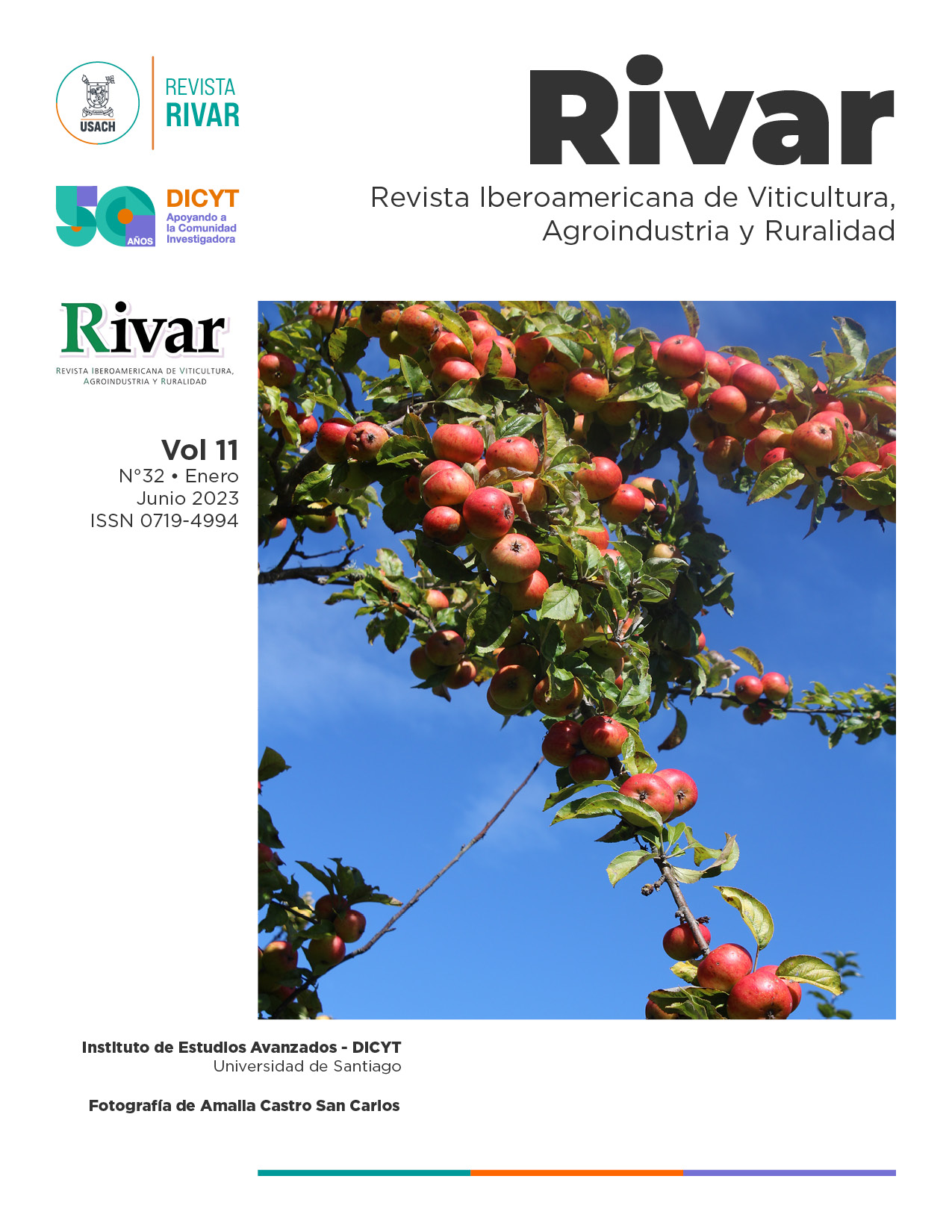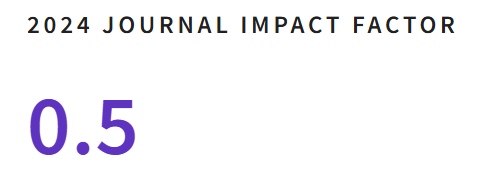Contributions to the Sustainability of the Rural Mezcal System: The Case of the Queréndaro Region in Michoacán, Mexico
DOI:
https://doi.org/10.35588/rivar.v11i32.5803Keywords:
rural economy, cultural diversity, agrarian structure, enviromental sustainabilityAbstract
The traditional Mexican mezcal socio-ecosystem has extensive biocultural and economic wealth presence in rural communities. However, in recent years an intense demand has been experienced in global markets generating processes of agro-industrialization of diverse traditional practices and thereby negatively impacting the sustainability of the system. Regarding this matter the research aims to characterize and typify the existing relationships between producers and their socio-environmental contexts, contributing elements to the construction of greater degrees of local sustainability within rural contexts, using the Queréndaro region, in the central north of Michoacán state, as a case study. Our results show that the sustainability of the analysis units varies between and intra diversed categories, while sustainability is not a characteristic of the type of mezcal, but of the producers. It is their traditional cultural relationships, their history and their association with nature the criteria which make this element to be created.
Downloads
References
Arreola Pompa, V., Pérez Akaki, P., and Santacruz Villaseñor, I. (2018). Activación de un SIAL para el desarrollo local. El caso de la denominación de origen mezcal en Michoacán. In D.A. Ayala Ortiz, R. López Paniagua and I. Santacruz Villaseñor (Coords.), El desarrollo local en construcción. Sistemas productivos locales y desarrollo territorial (pp. 1-22). Universidad Michoacana de Hidalgo and Cienpozuelos.
Chavez Parga, M.D.C., Pérez Hernández, E., and González Hernández, J.C. (2016). Revisión del agave y el mezcal. Revista Colombiana de Biotecnología, 18(1), 148-169. https://doi.org/10.15446/rev.colomb.biote.v18n1.49552
Colunga García Marín, P. (1996). Patterns of Morphological Variation, Diversity, and Domestication of Wild and Cultivated Populations of Agave in Yucatán, Mexico. American Journal of Botany, 83(8), 1069-1082. https://doi.org/10.1002/j.1537-2197.1996.tb12805.x
Colunga García Marín, P., Zizumbo Villarreal, D., and Martínez, J. (2007). Tradiciones en el aprovechamiento de los agaves mexicanos: Una aportación a la protección legal y conservación de su diversidad biológica y cultural. In P. Colunga García Marín, A. Larqué, L. Eguiarte, and D. Zizumbo-Villarreal (Eds.), En lo ancestral hay futuro: Del tequila, mezcales y otros agaves (pp. 229-248). CICY, CONACYT, CONABIO y SEMARNAT. https://doi.org/10.13140/RG.2.1.5192.1441
Consejo Regulador del Mezcal (2021). Informe Estadístico 2021. Consejo Regulador del Mezcal.
Creswell, J. and Creswell, D. (2018). Chapter 9 Qualitative Methods. In J. Creswell, Research Design Qualitative, Quantitative, and Mixed Methods Approaches (pp. 254-277). Sage.
Delgado Lemus, A.M., Torres García, I., Larson Guerra, J., Abbdelmassih Jiménez, D., and Illsley Granich, C. (2021). Mezcalla: Para conocer los mezcales michoacanos. Universidad Autónoma de México.
Díaz, D.T. and Cárdenas, V.T. (2010). El análisis de componentes principales en la interpretación de sistemas agroecológicos para el manejo de Rizobacterias promotoras del crecimiento vegetal para el cultivo de la caña de azúcar. Idesia, 28(1), 23-32. https://doi.org/10.4067/s0718-34292010000100004
Fernández, K.G., Moreno Calles, A.I., Casas, A., and Blancas, J. (2020). Contributions of Urban Collective Gardens to Local Sustainability in Mexico City. Sustainability, 12(18), 7562. https://doi.org/10.3390/su12187562
Figueredo, C.J., Casas, A., Colunga-García Marín, P., Nassar, J.M., and González Rodríguez, A. (2014). Morphological Variation, Management and Domestication of “Maguey Alto” (Agave inaequidens) and “Maguey Manso” (A. hookeri) in Michoacán, Mexico. Journal of Ethnobiology and Ethnomedicine, 10(1), 1-12. https://doi.org/10.1186/1746-4269-10-66
Gaytán, M.S. (2018). The Perils of Protection and the Promise of Authenticity: Tequila, Mezcal, and the Case of NOM 186. Journal of Rural Studies, 58, 103-111. https://doi.org/10.1016/j.jrurstud.2017.12.017
Gaytán, M.S. and Bowen, S. (2015). Naturalizing Neoliberalism and the De-Mexicanization of the Tequila Industry. Environment and Planning A, 47(2), 267-283. https://doi.org/10.1068/a130281p
Hernández López, J. de J. (2018a). El mezcal como patrimonio social: de indicaciones geográficas genéricas a denominaciones de origen regionales. Em Questão, 24(2), 404-443. https://doi.org/10.19132/1808-5245242.404-433
Hernández López, J. de J. (2018b). Los mezcales mexicanos: La importancia de su protección como patrimonio social. Ilha Revista de Antropología, 20, 179-205. http://dx.doi.org/10.5007/2175-8034.2018v20n2p179
Illsley, C., Torres-García, I., Hérnandez, J de J., Morales, R., Ibáñez, I., and Nava, H. (2018). Manual de manejo campesino de magueyes mezcaleros forestales. Grupo de Estudios Ambientales, AC.
INEGI (2020). Tabulador de la Encuesta Intercensal 2020. INEGI.
López Roldán, P. and Fachelli, S. (2015). Metodología de construcción de tipologías para el análisis de la realidad social. Universitat Autònoma de Barcelona.
Plascencia de la Torre, M.F. and Peralta Gordon, L.M. (2018). Análisis histórico de los mezcales y su situación actual, desde una prespectiva ecomarxista. Eutopía, 14, 23-42. https://doi.org/10.17141/eutopia.14.2018.3579
Red Temática Productos Forestales No Maderables (2018). Declaratoria de la Tercera Reunión Nacional de Manejadores de Maguey Forestal. Red Temática Productos Forestales No Maderables.
Torres, I., Blancas, J., León, A., and Casas, A. (2015a). TEK, Local Perceptions of Risk, and Diversity of Management Practices of Agave Inaequidens in Michoacán, Mexico. Journal of Ethnobiology and Ethnomedicine, 11(1). https://doi.org/10.1186/s13002-015-0043-1
Torres, I., Casas, A., Vega, E., Martínez Ramos, M., and Delgado Lemus, A. (2015b). Population Dynamics and Sustainable Management of Mescal Agaves in Central Mexico: Agave Potatorum in the Tehuacán-Cuicatlán Valley. Economic Botany, 69(1), 26-41. https://doi.org/10.1007/s12231-014-9295-2
Torres García, I. (2015). Distribución, aprovechamiento y manejo del maguey alto en el Estado de Michoacán , aportes para encaminar su sustentabilidad. In A. Martínez Palacios, J.L. Morales García, and S. Guillén (Eds.), Aspectos sobre el manejo y la conservación de agaves mezcaleros en Michoacán (pp. 153-163). UMSNH and SAGARPA.
____. (2016). Aprovechamiento de agaves mezcales en el centro de México: Una aproximación socioecológica para su manejo sustentable. [Tesis de doctorado]. Universidad Autónoma de México.
Torres García, I., and Hernández López, J. de J. (2016). Declaratoria de la Segunda Reunión de Manejadores de Maguey Forestal. Tecno Agave, Revista de La Cadena Del Agave y Sus Derivados, 44, 46-50.
Torres García, I., Rendón Sandoval, F.J., Blancas, J., Casas, A., and Moreno Calles, A.I. (2019). The genus Agave in agroforestry systems of Mexico. Botanical Sciences, 97(3), 263-290. https://doi.org/10.17129/botsci.2202
Zizumbo Villarreal, D. and Colunga García Marín, P. (2008). Early coconut distillation and the origins of mezcal and tequila spirits in west-central Mexico. Genetic Resources and Crop Evolution, 55(4), 493-510. https://doi.org/10.1007/s10722-007-9255-0
Zizumbo Villareal, D., Colunga García Marín, P., Vargas Ponce, O., Rosales Adame, J., and Nieto Olivares, R. (2009a). Tecnología agrícola tradicional en la producción de vino mezcal (mezcal y tequila) en el sur de Jalisco, México. Revista de Geografía Agrícola, 42, 65-82.
Zizumbo Villarreal, D., González Zozaya, F., Olay Barrientos, A., Platas Ruíz, R., Cuevas Sagardí, M., Almendros López, L., and Colunga García Marín, P. (2009b). Archaeological evidence of the cultural importance of Agave spp. in Pre-Hispanic Colima, Mexico. Economic Botany, 63(3), 288-302. http://dx.doi.org/10.1007/s12231-009-9092-5









